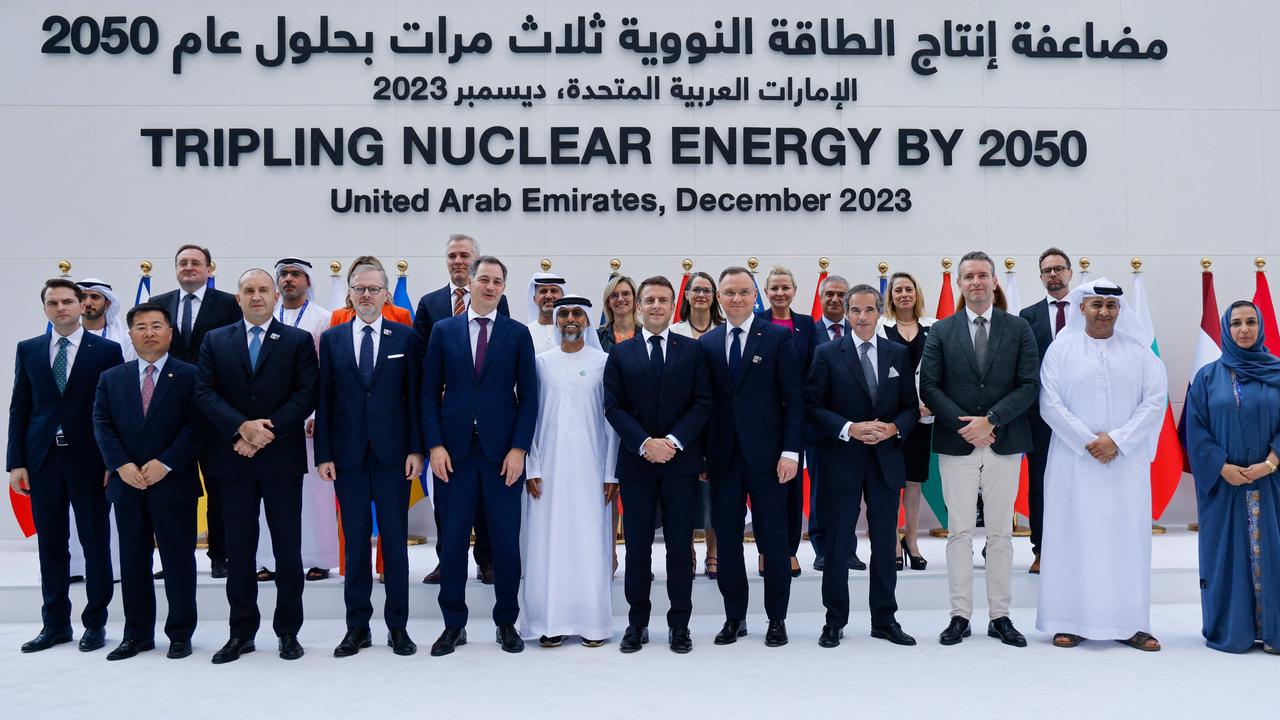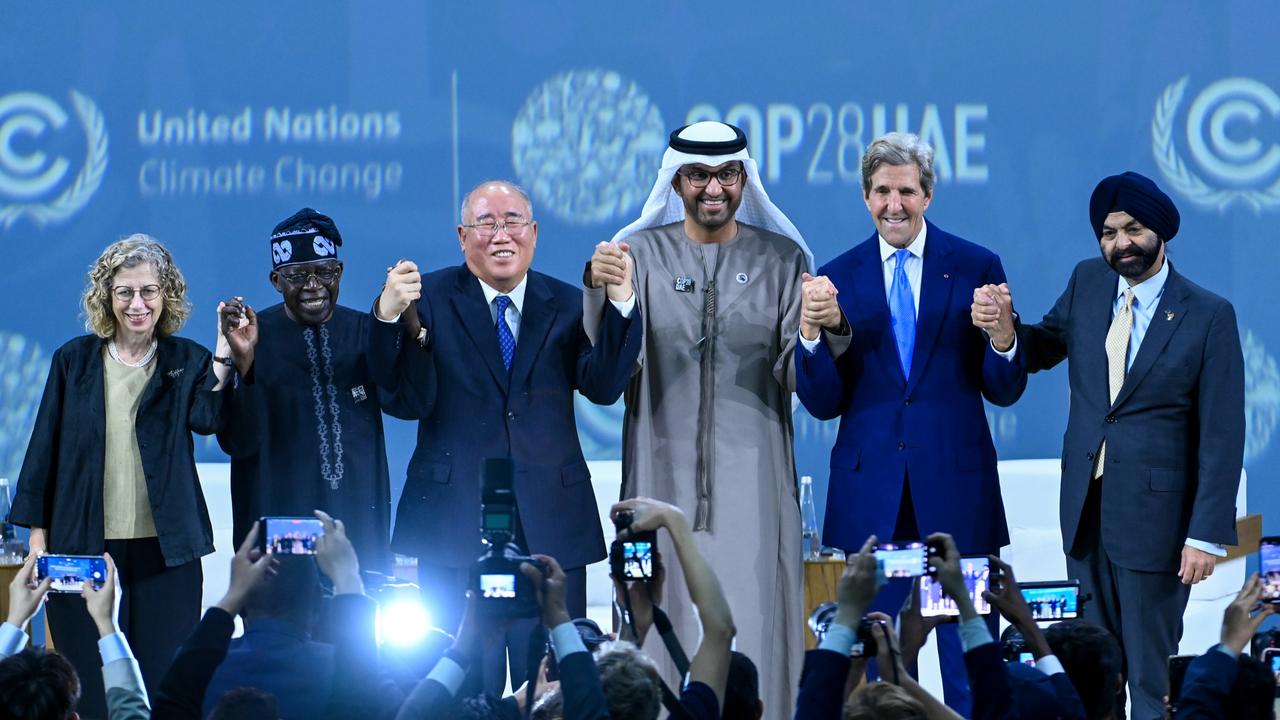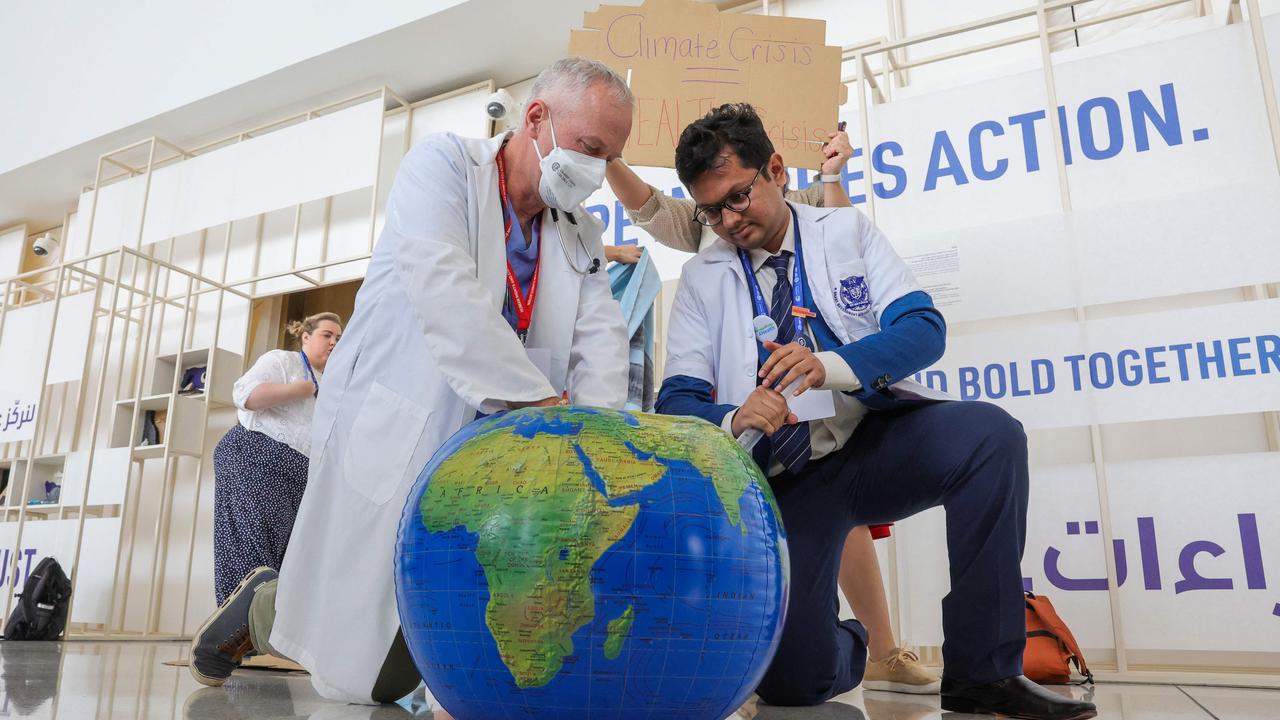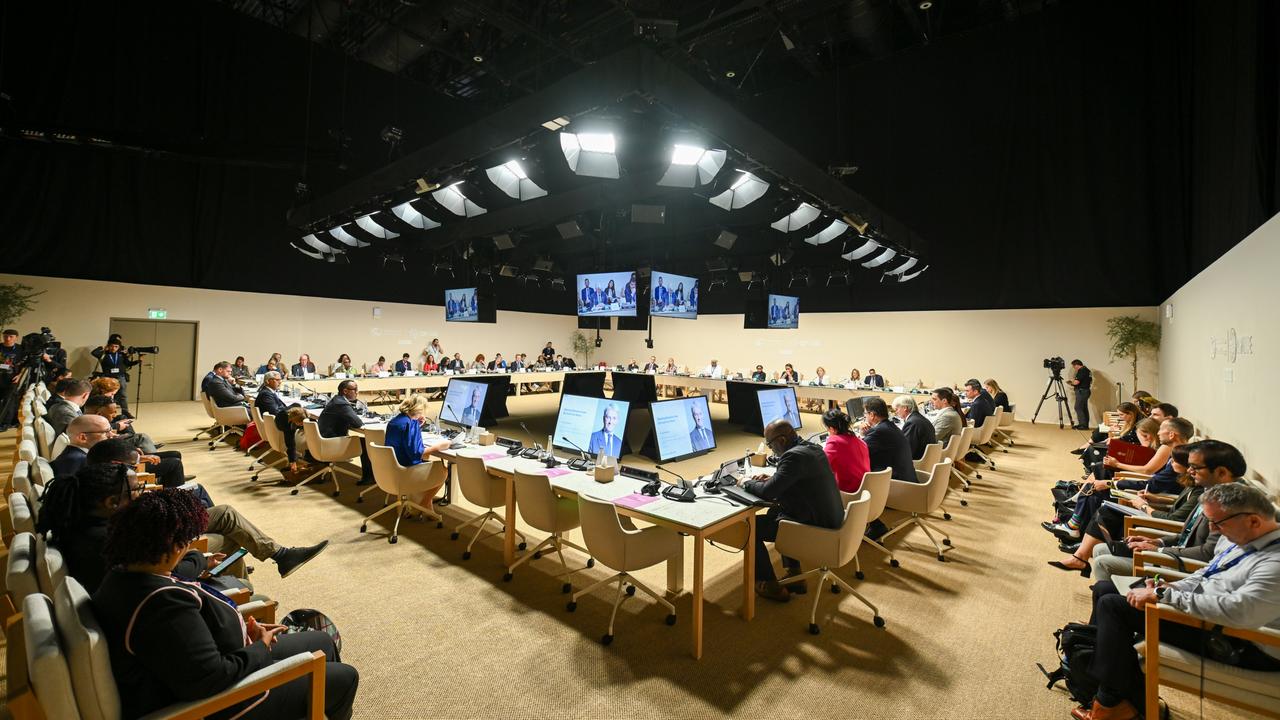What key climate issues will be discussed at this year’s COP28?
Phasing out fossil fuels across the globe is just one major challenge set to be discussed by more than 100 world representatives at this year’s UN climate change summit

READING LEVEL: RED
Politicians and industry leaders from across the globe are tackling a range of climate change issues at this year’s COP28 summit in Dubai, following a year of record heat and drought.
More than 100 world leaders and representatives from Australia, Europe, the US, the Middle East, Asia, Africa and South America are meeting to discuss whether to phase out fossil fuels and how to pay for the transition to clean energy in developing countries.
Here are some of the biggest issues set to be discussed at this year’s UN climate change summit.
REVIEWING CURRENT GOALS
The main task at this year’s COP28 is to assess for the first time how each country is tracking towards meeting targets set by the 2015 Paris Agreement, which had a goal of limiting the global temperature rise to about 1.5 degrees Celsius.
Countries will work to agree on a plan to get the world on track to meet climate goals following the lagging efforts of some emitters.
The plan could include urgent steps towards cutting CO2 emissions or boosting green technology investments.
There are disagreements between different countries as to whether this plan should put the onus on all countries, or just the world’s wealthiest countries since they have released the most planet-warming emissions over time.
Countries are expected to update their national emissions-cutting targets and plans by 2025.

FUTURE OF FOSSIL FUELS
One of the biggest issues on the table is whether countries should commit to phasing out the use of fossil fuels, such as CO2-emitting coal, oil and gas.
Countries agreed at COP26 to phase down the use of coal, but they have never agreed to quit all fossil fuels – the main source of planet-warming emissions.
The United States, European Union and many climate-vulnerable countries are insisting on a final COP28 deal that commits countries to phase out fossil fuels.
But at the G20 summit earlier this year, countries weren’t able to agree on whether to phase out fossil fuels, with some members, such as Russia, saying they would oppose such a plan.
Members have expressed concern after United Arab Emirates (UAE) representative and COP28 president Sultan al-Jaber said “there was no science behind” the call for phasing out fossil fuels.

The UAE has built wealth over time through its bountiful supply of oil, one of the most widely used fossil fuels on the planet. Al-Jaber had previously said the phase down of fossil fuels was “inevitable” and countries had been waiting to see if the UAE would push other oil-rich nations to back the idea at COP28.
But in an online meeting at the summit on December 4, al-Jaber said phasing out fossil fuels would “take the world back into caves” – comments that scientists said “verged on climate denial.”
Al-Jaber said there was “no science out there” that the world needed to cut out fossil fuels to avoid warming the earth more than 1.5 degree Celsius, but climate scientists have disagreed.
Climate Analytics chief executive Dr Bill Hare told The Guardian the International Energy Agency had pointed to the importance of fossil fuels being phased out in order to achieve the 1.5 degree Celsius target.
“The science is absolutely clear (and) that absolutely means a phase-out by mid-century, which will enhance the lives of all of humanity,” Dr Hare said.
Al-Jaber has already faced criticism as the UAE’s president of the climate talks, given his role as head of the UAE’s state-owned oil and gas company ADNOC.

TECHNOLOGIES TO TACKLE EMISSIONS
The UAE and other countries that rely on fossil fuels to drive their economies want COP28 to include a focus on emerging technologies that can capture and store CO2 emissions underground.
While the International Energy Agency says these technologies are crucial for meeting global climate goals, they are also expensive and not currently used on a large scale. The EU and others worry they will be used to justify continued fossil fuel use.
BOOSTING CLEAN ENERGY CAPACITY
Countries will consider setting goals to triple renewable energy capacity and to double energy savings by 2030 – a proposal made by the European Union, United States and the UAE’s COP28 presidency.
It looks like most countries will support this measure. China and Australia have already backed the renewables goal. But the EU and some countries that are vulnerable to climate events insist this pledge should be paired together with phasing out fossil fuels, which has created a clash.

PAYING FOR THE COSTS OF CLIMATE CHANGE
Tackling climate change and its effects will cost a lot of money – far more than the world has budgeted for so far.
Developing countries will need at least $200 billion every year by 2030 to adapt to worsening climate impacts like coastal sea rise or storms, according to the UN. They will also need money to set up sustainable energy in place of fossil fuels as well as money to pay for damage created by climate disasters.
In response, COP28 countries have created a “loss and damage” fund to help vulnerable countries pay for the impacts of climate change. The fund will be like a bank account that richer countries will deposit millions of dollars into in order to help vulnerable countries financially manage the effects of climate change.
The UAE and Germany have already pledged $100m each to the fund and the UK, the US and Japan have also committed millions of dollars.
Developing nations said the fund should provide at least $100 billion by 2030.
POLL
GLOSSARY
- Paris Agreement: an international treaty on climate change that included commitments from all countries to reduce emissions and work together to adapt to climate change
- onus: duty or responsibility
- climate denial: rejecting that human-caused climate change is occurring
EXTRA READING
Humans factor in record heat
Great Barrier Reef gets thumbs up
The big weather change coming to Australia
QUICK QUIZ
What is the purpose of the COP28 summit?
What are two issues being discussed?
What is the “loss and damage” fund?
What warming target was set in the 2015 Paris Agreement?
Why is COP28 president Sultan al-Jaber facing criticism?
LISTEN TO THIS STORY
CLASSROOM ACTIVITIES
1. Persuasive text
You are to write a persuasive text to the Russian President, Vladimir Putin, imploring him to phase out fossil fuels for the sake of the environment and the future of the younger generation such as yourselves.
Your text should be structured as an introduction to state your argument on the topic, three or four paragraphs with an argument stated in each of those paragraphs. Lastly finish your writing with a conclusion restating your main arguments and imploring the Russian president to phase out fossil fuels.
Re-read, proofread and edit your text accordingly to have a published writing piece on an important topic.
Time: allow 50 minutes to complete this activity
Curriculum Links: English, Science, Personal and Social, Critical and Creative Thinking
2. Extension
Using a For and Against column, write all the reasons why some countries are in agreement to phase out fossil fuels, and some are not.
Should we phase out all fossil fuels in the near future?
ARGUMENTS FOR:
ARGUMENTS AGAINST:
Time: allow 20 minutes to complete this activity
Curriculum Links: English, Science, Personal and Social, Critical and Creative Thinking
VCOP ACTIVITY
Summarise the article
A summary can be a really good way to grab the main idea plus some key points in the article as a highlight. Think of the summary like a little advertisement or extract you could use to encourage people to read the article in detail. You want to give them an overview of the article that includes the main idea (being able to tell the audience what the article is about in one sentence), plus a few of the key points of the information.
Remember to re-read your summary to check that it is clear, concise and makes sense to the audience who haven’t read the article yet. You need to make language choices that allow you to explain the information in only a few sentences.

